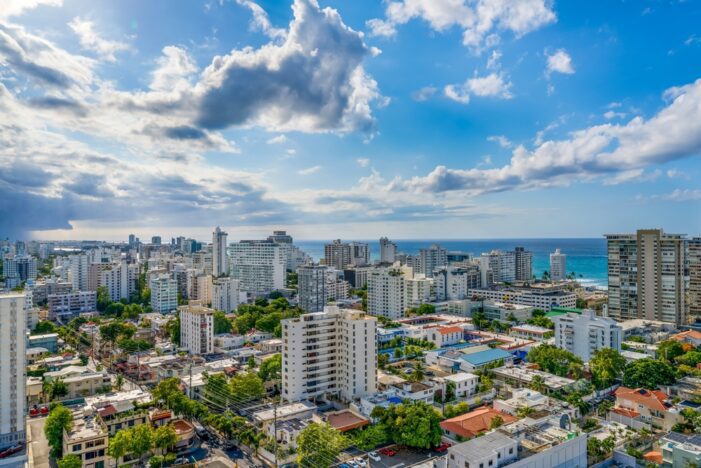Puerto Rico—an unincorporated U.S. territory brimming with Afro‑Latin-Caribbean heritage—offers a unique fusion of U.S.-style governance, rich cultural identity, and powerful investment incentives. For African American investors seeking cultural connection and financial impact, Puerto Rico presents a compelling nexus. This article explores its culture, languages, economic strengths, investment opportunities, strategic approaches, and incentives like Act 60.
- Cultural Identity & Heritage
Puerto Rico’s culture emerges from a vibrant mix of Taíno, African, Spanish, and U.S. influences. A large portion of the population identifies as Afro‑Puerto Rican and has shaped music, dance, cuisine, literature, and religion on the island and abroad.
Music like bomba, plena, reggaetón, literature by authors such as Giannina Braschi and Julia de Burgos, visual arts, dance, and Afro-Caribbean spiritual traditions (like Santería) enrich Puerto Rico’s identity. The Festival Nacional Afrocaribeño in Ponce celebrates these with salsa, bomba, plena, crafts, and cuisine—engaging some 30,000 attendees annually.
This lived heritage resonates deeply with African American cultural roots and offers fertile ground for diaspora-aligned ventures.
- Language & Cultural Cohesion
Spanish and Puerto Rican Creole (Spanglish with African tonalities) dominate daily life, while English is official and widely used in business, government, and tourism. Cultural fluency in Spanish or Spanglish, even if through collaborators, enhances authenticity for heritage projects. English provides immediate ease for many diaspora investors.
- Economic Landscape & Core Sectors
Tourism & Creative Economy
Tourism contributes about 10% of GDP, with cultural tourism, Old San Juan’s architecture, beach resorts, and historical experiences attracting visitors. Puerto Rico’s creative sector—amplified by performers such as Bad Bunny—supports a thriving arts economy with global recognition.
Manufacturing & Pharmaceuticals
The island is rebuilding its export base—especially in pharmaceuticals and medical devices—leveraging U.S. tariff exemptions and skilled bilingual labor. The government actively courts foreign firms with tax and infrastructure incentives.
Startups & Venture Capital
Innovative funding ecosystems are emerging, including Rebel Fund, a $175 million seed fund backing Y Combinator–affiliated startups in San Juan—highlighting technology’s growing role on the island.
- Incentives & Puerto Rico’s Act 60 Framework
U.S. Legal Alignment
As a U.S. territory, Puerto Rico operates under U.S. law, uses the dollar, and offers U.S. constitutional protections—making legal and investment frameworks familiar to U.S. citizens.
Act 60 (Export Services & Individual Investor Acts)
Act 60, formerly Acts 20/22, offers transformative tax advantages when U.S. citizens become bona fide Puerto Rico residents:
- 0% capital gains tax on gains realized post-residency
- 4% corporate tax rate for eligible export services businesses
- 0% tax on dividends and interest from Puerto Rico sources
- 75% property tax reduction, up to 2035
Requirements include: 183 days residency per year, proximity tests, purchase of qualifying property within two years, and an annual $10,000 donation to Puerto Rican charities.
Opportunity Zones & Local Incentives
Over 95% of Puerto Rico is designated as Opportunity Zones, enabling deferral and step-up tax basis for gains invested in qualified funds. Additional R&D credits (up to 50%), job training grants, and manufacturing incentives are available via PRIDCO and development agencies.
- Strategic Paths for African American Investors
Cultural & Creative Ventures
Opportunities abound in heritage hotels, music and arts residencies, culinary experiences centered on bomba, plena, and Afro-Puerto Rican food, and establishing diaspora-focused festivals—aligned with institutions like the National Afrocaribbean Festival.
Financial Services & Export Businesses
Export-oriented services—e.g. digital agencies, consultancy, creative content—can establish Act 60‑qualified firms enjoying low corporate tax and dividend advantages while serving global clients.
Real Estate & Residency Strategy
Residency achieved via Act 60 incentives often pairs with real estate investment in San Juan, Ponce, or coastal areas. Property held post-residency benefits from tax discounts and appreciation exempt from capital gains tax.
Tech & Startup Ecosystem
Puerto Rico’s growing fintech, blockchain, and VC ecosystems—backed by funds like Rebel Fund—offer entry points for diaspora tech entrepreneurs seeking U.S.-based international growth opportunities.
- Best Practices & Considerations
- Clarify your goals: Legacy and culture, tax optimization, business growth, or residency status?
- Establish bona fide residency: Understand IRS rules under IRC §933 and Puerto Rico residency tests.
- Use professional counsel: U.S. and PR-based tax law advisors are essential to properly qualify and structure entities.
- Purchase qualifying property: Real estate must meet Act 60 parameters and be purchased within required timeframes.
- Partner locally: Engage cultural organizations, real estate developers, PRIDCO, and local entrepreneurs for authentic alignment.
- Balance community impact: Critics cite displacement and inequality tied to gentrification—projects should include inclusive hiring, philanthropy, and community engagement.
- Summary & Outlook
Puerto Rico offers a distinct blend of Afro‑Latin culture, U.S. legal stability, and unmatched tax regimes via Act 60. African American investors can build ventures that uphold cultural authenticity, benefit from 0% capital gains structure, and tap into tourism, creative industries, export services, real estate, and innovation ecosystems.
Success lies in proper navigation of residency and legal requirements, respecting local communities and investing with cultural resonance. Puerto Rico presents a rare opportunity: combining diaspora connection, economic incentive, and the possibility of building legacy-aligned enterprises within U.S. jurisdiction.


